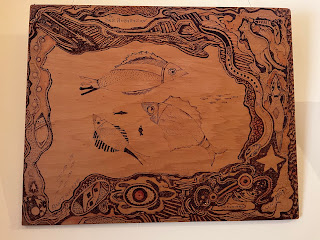Simas Narušis
Born 13 March 1899 – 23 December 1969
Born in Karališkiai, not far from Jurbarkas. In 1927 he
finished Kaunas school and in 1930-31 studied at Vytautas Didysis University,
law faculty. He married Vanda. They had
no children.
Simas volunteered for the newly formed Lithuanian Army. In 1933, Simas rose to the rank of Major. During the second world war he organised and
led separate military units in the east and fought with Lithuanian enemies.
From his first arrival in Australia, Simas joined in with Lithuanian
activities and was a member of the Sydney Lithuanian Society Committee, where
he tirelessly organised community events.
From 1965 until his death five years later, he served as the
President of the Australian Lithuanian community. He visited every Lithuanian community around
Australia, even the small branches. He
maintained strong links with scouts, youth and sports clubs. He encouraged Lithuanians to work not for themselves
but for the Lithuanian nation and the community. In 1968, the Latvian community in Australia a
silver medal for his efforts and merits in the fight for the freedom of the
Baltic nations. In 1969, Simas was a
delegate at the World Lithuanian Community parliament where he was presented
with another medal. Ill with cancer, Simas
travelled to New Zealand to meet with the Lithuanian community there.
His motto was Visi mano atsiekimai ir darbai - Tau
Lietuva! All my achievements and
work – For you Lithuania!"
His enthusiasm
and work for Lithuania was felt by all and his death was a tragic blow to all Lithuanians
in Australia. A guard of honour made up
of Lithuanian scouts, Federal Council members, Ramovė and members of the
Sydney Lithuanian Committee stood by his casket which had been draped in a
Lithuanian flag.
Several years later on 14 March 1971, the community gathered
at the gravesite of Simas to remember him and bless the headstone placed there.
Engineer A. Jakštas designed the headstone of black granite with a white cross
and the Gedimino stulpai carved into lower corner. It stands in the Lithuanian section of
Rookwood Cemetery, Sydney.
.tif)



.tif)
.tif)


